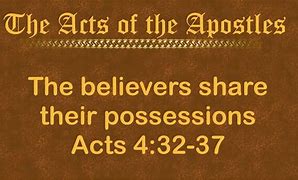Moses - A Man of Selfless Dedication/Chapter
14: Why Leaders Crack Up
Charles Swindoll argues that the problem of delegation seems to be the common struggle of leaders across the globe. This problem occurs “when leaders try to do too much on their own, when they neglect to bring others into the job to help them shoulder the load” (218).
Many Christian leaders feel like they must be all they can
to all people to assuage lingering guilt or to win someone’s approval (even
God). Most times the result of this peril are leaders who become overworked,
drained, and exhausted. Following closely comes confusion, vision loss,
burnout, and for some, the loss of family.
Exodus 18 is a study in leadership and the fine art of
delegating.
Now Jethro, the priest of Midian and father-in-law of
Moses, heard of everything God had done for Moses and for his people Israel,
and how the Lord had brought Israel out of Egypt.2 After
Moses had sent away his wife Zipporah, his father-in-law Jethro received
her 3 and her two sons. One son was named Gershom,[a] for Moses said, “I have
become a foreigner in a foreign land”; 4 and the other was named Eliezer,[b] for he said, “My father’s
God was my helper; he saved me from the sword of Pharaoh.”5 Jethro,
Moses’ father-in-law, together with Moses’ sons and wife, came to him in the
wilderness, where he was camped near the mountain of God. 6 Jethro had sent word to him, “I, your father-in-law Jethro, am
coming to you with your wife and her two sons.”7 So
Moses went out to meet his father-in-law and bowed down and
kissed him. They greeted each other and then went into the tent.
Moses received a surprise visit from his father-in-law, a welcomed
surprise. Jethro brought along Moses’ wife and kids. One should be grateful
when (1) you can let down your guard and share with another leader/mentor; and
(2) you have a good relationship with the in-laws.
Jethro ended the day by leading Moses and company into worship. He
was not jealous of Moses’ experiences; he rejoiced for his success. Jethro
blessed God for his son-in-law and the work God did through him
Jethro was
delighted to hear about all the good things the Lord had done for Israel in rescuing them from the hand of
the Egyptians. 10 He said, “Praise
be to the Lord, who
rescued you from the hand of the Egyptians and of Pharaoh, and who rescued the
people from the hand of the Egyptians. 11 Now I know that
the Lord is greater
than all other gods, for he did this to those who had treated Israel
arrogantly.” 12 Then Jethro,
Moses’ father-in-law, brought a burnt offering and other
sacrifices to God, and Aaron came with all the elders of Israel to eat a
meal with Moses’ father-in-law in the presence of God.
It is a blessing to have good relationships with family
members and to have the ear of an encouraging mentor/friend.
ü
Leaders need relational support – encouragement
and affirmation.






